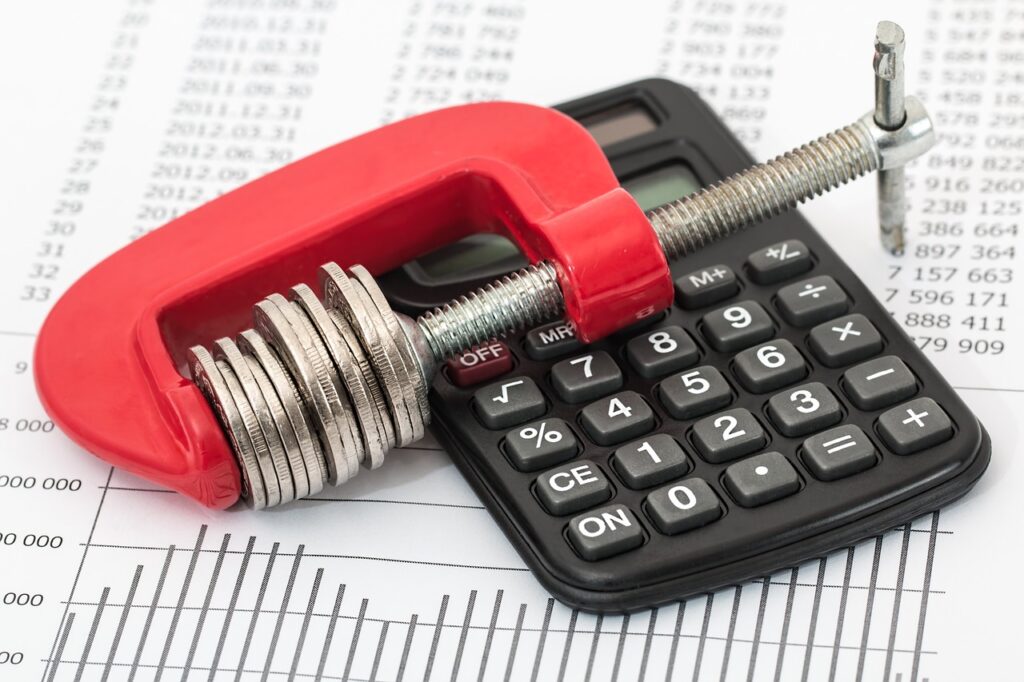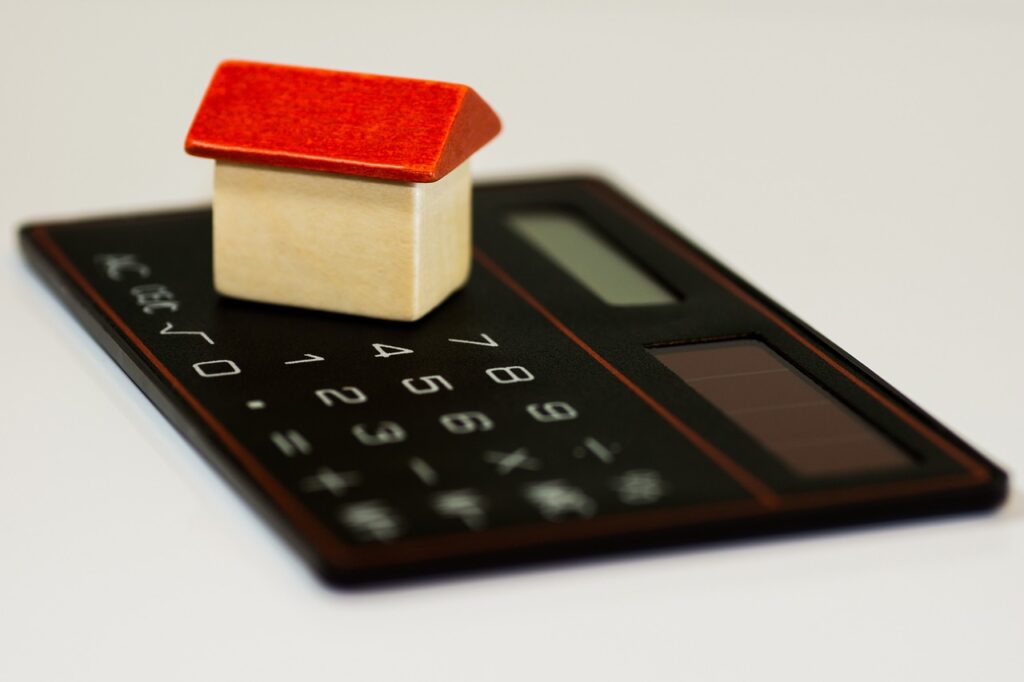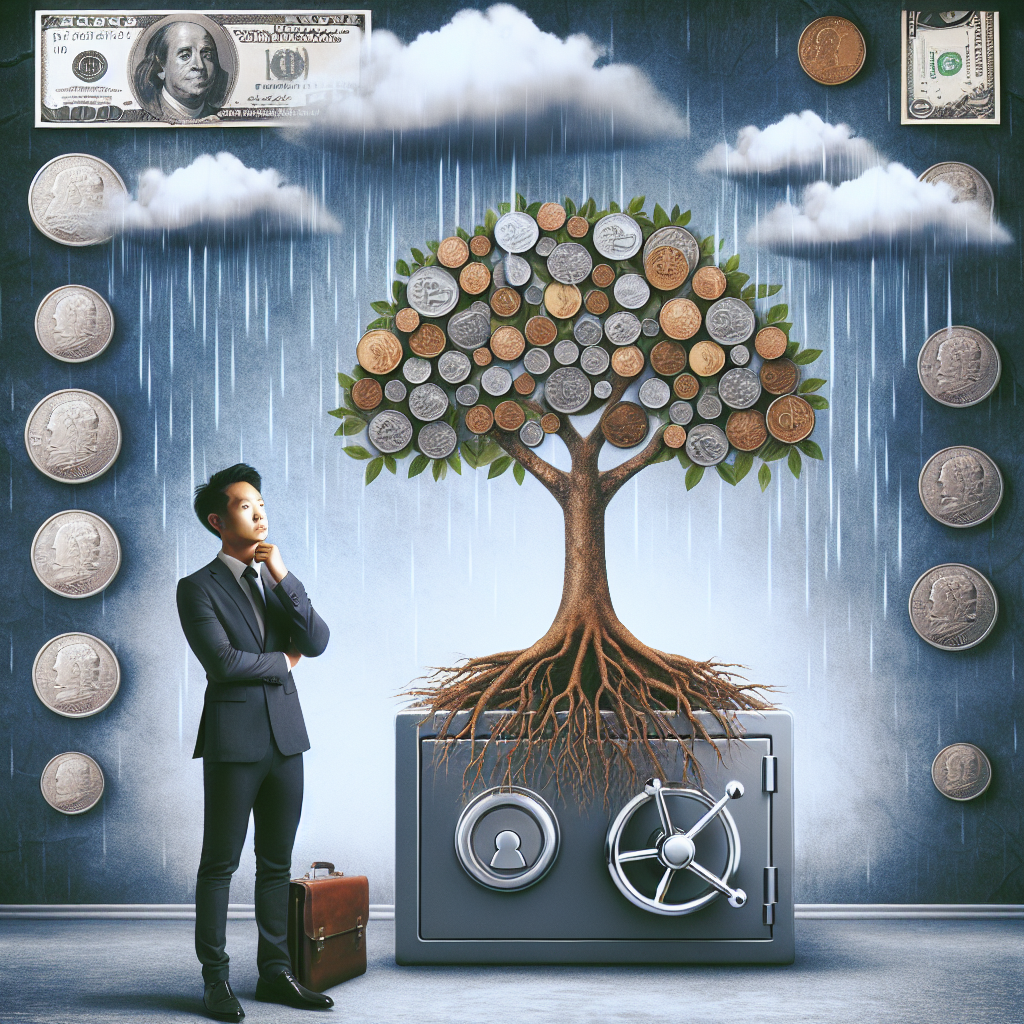Money Matters: How To Build A Solid Emergency Fund

You know that unexpected expenses can happen at any time, whether it’s a medical emergency or unexpected car repairs. That’s why having a solid emergency fund is essential for financial stability. In this article, you will find practical tips and strategies on how to build and maintain an emergency fund that will provide you with peace of mind during those unexpected moments. So, let’s get started on your journey to financial security!
Why You Need an Emergency Fund
Unforeseen Expenses
Life is full of unexpected twists and turns, and unfortunately, some of those twists can come in the form of unforeseen expenses. Whether it’s a broken appliance, a sudden medical bill, or a home repair that can’t wait, these unexpected costs can quickly add up and throw your finances off balance. That’s where an emergency fund comes in handy. By having a cushion of money set aside specifically for these unpredictable expenses, you can avoid going into debt and maintain financial stability.
Job Loss
No one wants to think about losing their job, but unfortunately, it’s a possibility that many people have to face at some point in their lives. Having an emergency fund can provide much-needed peace of mind during this difficult time. If you suddenly find yourself without a steady income, your emergency fund can act as a bridge to help cover your expenses until you find a new job. It can help alleviate the stress and financial strain that often accompanies unemployment.
Medical Emergencies
Health issues can arise when we least expect them, and the cost of medical care can be exorbitant. Whether it’s a sudden illness, an injury, or a necessary medical procedure, having a well-funded emergency fund can ensure that you can afford the necessary medical care without compromising your financial stability. With medical emergencies being one of the leading causes of bankruptcy, having an emergency fund can provide a safety net to protect you and your loved ones.
Car Repairs
Your car is an essential part of your daily life, providing transportation to work, school, and other important commitments. However, cars are prone to breakdowns and unexpected repairs. From blown tires to malfunctioning engines, these repairs can be costly and catch you off guard. By having an emergency fund, you can easily handle these unexpected repair costs and ensure that your car remains in good working condition. Being prepared for car repairs can prevent financial strain and potential disruptions to your daily routine.
Home Repairs
Homeownership comes with a whole host of responsibilities, including the maintenance and repairs that come with it. From leaky roofs to burst pipes, unexpected home repairs can arise at any time, and the price tag associated with these repairs can be substantial. Having an emergency fund set aside specifically for home repairs can give you the peace of mind of knowing that you can handle these expenses without dipping into your regular monthly budget or going into debt.
Determining the Right Amount for Your Emergency Fund
Monthly Expenses Calculation
To determine the right amount for your emergency fund, it’s essential to start by calculating your monthly expenses. Take into account all your recurring bills, such as rent or mortgage payments, utilities, groceries, transportation costs, and any other ongoing expenses. Consider any additional costs that may arise in the event of an emergency, such as medical bills or unforeseen repairs. Once you have a clear understanding of your monthly expenses, you can use this figure as a starting point for your emergency fund.
Consider Your Job Security
Another factor to consider when determining the right amount for your emergency fund is your job security. If you have a stable job with a reliable income and job security, you may not need as large of an emergency fund as someone with a less stable employment situation. Consider your industry, the stability of your employer, and any factors that could potentially impact your job security. It’s always better to be safe than sorry when it comes to building your emergency fund.
Take Into Account Your Lifestyle
Your lifestyle plays a significant role in the amount of money you should have in your emergency fund. If you have dependents or a high cost of living, your emergency fund should be larger to account for potential financial obligations and unexpected expenses. Evaluate your lifestyle choices, such as dining out frequently or taking frequent vacations, and consider how these choices may impact your emergency fund needs. It’s important to strike a balance between enjoying your lifestyle and being financially prepared for emergencies.
Consider Any Dependents
If you have dependents, such as children or aging parents, it’s crucial to factor their needs into the equation when determining the right amount for your emergency fund. Children require ongoing financial support, and caring for aging parents may involve unexpected medical expenses or additional caregiving costs. By considering the needs of your dependents, you can ensure that your emergency fund is sufficient to cover any potential financial disruptions that may arise.

Creating a Budget to Save for Your Emergency Fund
Track Your Income and Expenses
Creating a budget is a crucial step in saving for your emergency fund. Start by tracking all your sources of income, including your salary, any side gigs, or freelance work. Next, track all your expenses, both fixed and variable. This will give you a clear picture of where your money is going and where you can potentially cut back to save more for your emergency fund. Remember to include savings as an expense item on your budget – treat it as a priority and pay yourself first.
Identify Areas to Cut Expenses
Once you have a clear understanding of your income and expenses, it’s time to identify areas where you can cut expenses to save more for your emergency fund. Look for non-essential expenses that you can live without, such as eating out less often, canceling unused subscriptions, or finding more cost-effective alternatives for everyday items. By making small adjustments to your spending habits, you can redirect those funds towards building your emergency fund.
Automate Savings
One of the easiest and most effective ways to save for your emergency fund is to automate your savings. Set up an automatic transfer from your checking account to your emergency fund on a regular basis, whether it’s monthly, bi-weekly, or whenever you receive your paycheck. By automating your savings, you remove the temptation to spend that money elsewhere, and it becomes a regular habit that you don’t have to actively think about.
Set Realistic Goals
When saving for your emergency fund, it’s important to set realistic goals. Start by establishing a target amount that you would like to have in your emergency fund within a certain timeframe. Break that target down into smaller, more manageable goals. Celebrate each milestone reached along the way, as it will keep you motivated and make the journey more enjoyable. Set deadlines for achieving each goal and hold yourself accountable to stay on track.
Where to Keep Your Emergency Fund
High-Yield Savings Account
When deciding where to keep your emergency fund, a high-yield savings account is often a top choice. These accounts typically offer higher interest rates compared to traditional savings accounts, allowing your emergency fund to grow over time. Look for accounts with no or minimal fees and easy access to your funds. Make sure the institution is reputable and insured by the FDIC (Federal Deposit Insurance Corporation) for added security.
Money Market Account
Another option for keeping your emergency fund is a money market account. Money market accounts often offer higher interest rates than regular savings accounts, while still providing easy access to your funds. They typically come with check-writing capabilities, which can be useful if you need to access your emergency funds quickly. Look for accounts with competitive interest rates and low fees.
Certificates of Deposit (CDs)
Certificates of Deposit (CDs) can be a good option for those who want to earn a higher interest rate without immediate access to their funds. With a CD, you agree to leave your money in the account for a set period, usually ranging from a few months to several years. In return for this commitment, you typically earn a higher interest rate than with a traditional savings account. Keep in mind that accessing your funds before the CD’s maturity date may result in penalties.
Consider Liquidity and Accessibility
When deciding where to keep your emergency fund, it’s important to consider both liquidity and accessibility. While it’s important to earn a competitive interest rate, you also want to be able to access your funds quickly and easily in the event of an emergency. Balance the need for a higher interest rate with the need for accessibility, and choose an account or combination of accounts that best meets your individual needs and preferences.

Best Practices to Boost Your Emergency Fund
Increase Your Income
If you want to boost your emergency fund more quickly, increasing your income can be a game-changer. Look for opportunities to advance in your current job or explore side gigs and freelance work that can bring in additional income. Consider investing in your skills and education to make yourself more marketable and increase your earning potential. The more you can increase your income, the more you can contribute to your emergency fund, and the faster it will grow.
Save Windfalls and Bonuses
Windfalls and bonuses, such as tax refunds or work-related bonuses, can provide a great opportunity to give your emergency fund a boost. Instead of immediately splurging on something you don’t necessarily need, consider redirecting a portion or all of these unexpected funds to your emergency savings. This enables you to keep your financial stability intact and prepare for any unforeseen circumstances that may arise in the future.
Minimize Debt
Debt can be a significant obstacle when it comes to building an emergency fund. High-interest debt, in particular, can eat away at your savings and hinder your ability to save for emergencies. Make it a priority to pay off high-interest debts as quickly as possible. Focus on one debt at a time, starting with the one with the highest interest rate, while making minimum payments on the others. As you pay off each debt, use the money that was previously allocated towards debt repayment to boost your emergency fund.
Limit Unnecessary Expenses
Cutting back on unnecessary expenses is a key strategy to boost your emergency fund. Take a close look at your budget and identify areas where you can trim spending. This could be as simple as brewing your own coffee instead of buying it every day or bringing your lunch to work instead of eating out. Small changes in your spending habits can add up over time and help you save more for emergencies.
Do Not Tap into Your Fund Unless It’s an Emergency
The purpose of an emergency fund is to be there for you when you truly need it. It’s important to resist the temptation to dip into your fund for non-essential expenses or impulse purchases. Define what constitutes an emergency for yourself and commit to using your emergency fund strictly for those situations. By maintaining discipline and only tapping into your fund when necessary, you can ensure that your emergency savings will be there when you need it the most.
Taking Advantage of Employer-Sponsored Plans
401(k) Plans
If your employer offers a retirement savings plan such as a 401(k), it can be an excellent opportunity to build your emergency fund. Some 401(k) plans allow participants to take out loans against their account balances, which can be a valuable option in times of financial need. It’s essential to fully understand the terms and conditions of your 401(k) plan and the potential implications of borrowing from it. Make sure to explore all alternatives before considering this option and consult a financial advisor if needed.
Health Savings Accounts (HSAs)
Health Savings Accounts (HSAs) are another type of employer-sponsored plan that can provide financial support in the event of a medical emergency. HSAs are tax-advantaged accounts specifically designed to help individuals save and pay for qualified medical expenses. Contributions to an HSA are tax-deductible, and withdrawals used for qualified medical expenses are tax-free. By maximizing your contributions to an HSA, you can build a safety net for potential medical emergencies while taking advantage of the associated tax benefits.

Overcoming Challenges in Building an Emergency Fund
Lack of Discipline
Building an emergency fund requires discipline and commitment. The temptation to spend money on non-essential items or give in to impulsive purchases can be strong. Overcoming this challenge starts with setting clear goals and reminding yourself of the importance of having a financial safety net. Automating your savings can help remove the need for constant decision-making and make saving for emergencies effortless.
Unexpected Expenses
Unexpected expenses can throw a wrench in your efforts to build an emergency fund. It’s important to be flexible and adjust your savings strategy when these expenses arise. Consider reallocating a portion of your savings temporarily to cover the unforeseen costs, and then resume your regular savings plan once the unexpected expense has been resolved. Remember, the key is to stay committed to your long-term goal of building an emergency fund.
Prioritizing Other Financial Goals
It’s common to have multiple financial goals competing for your attention. While it’s crucial to prioritize building an emergency fund, it’s also important to balance it with other financial objectives. Find a balance between saving for emergencies and working towards your other goals, such as retirement savings or paying off debt. It’s all about finding the right allocation of your resources that suits your individual financial situation and priorities.
Low Income
Having a low income can make building an emergency fund more challenging, but it’s not impossible. Start by focusing on your budget and finding areas where you can cut expenses. Look for opportunities to increase your income, whether it’s through a part-time job, freelancing, or exploring government assistance programs. Every little bit counts, and even small contributions towards your emergency fund can build up over time.
Balancing Debt Payments
If you’re dealing with significant debt, finding the balance between debt payments and building an emergency fund can be a challenge. Although it’s important to prioritize paying down debt, it’s equally crucial to have a financial safety net. Find a balance between allocating a portion of your resources towards debt repayment and contributing to your emergency fund. Consider working with a financial advisor to create a strategy that suits your individual circumstances.
Using Windfalls and Extra Income Wisely
Fill Up Your Emergency Fund
When you receive a windfall or extra income, one of the wisest uses for that money is to fill up your emergency fund. Take advantage of these unexpected financial boosts to make significant contributions towards your emergency savings. This will help you reach your target amount more quickly, providing you with greater financial security in the long run.
Pay Off High-Interest Debt
Another wise use for windfalls and extra income is to pay off high-interest debt. High-interest debt can drain your financial resources and hinder your ability to build an emergency fund. By paying off these debts, you free up more money to put towards emergencies and reduce the financial burden of high interest rates.
Invest for the Future
If your emergency fund is already well-funded and your high-interest debt is under control, consider investing any windfalls or extra income for the future. Consult with a financial advisor to determine the best investment opportunities based on your individual goals and risk tolerance. Investing wisely can help grow your wealth and provide a solid financial foundation for the years to come.
Plan for Long-Term Financial Goals
Lastly, use windfalls and extra income to plan for long-term financial goals. Whether it’s saving for a down payment on a home, funding your child’s education, or planning for retirement, use these additional funds to get closer to these objectives. By proactively planning and investing in your future, you can achieve a greater sense of financial security and peace of mind.

Staying Motivated to Build and Maintain Your Emergency Fund
Set Milestones and Celebrate Achievements
Building and maintaining an emergency fund is a long-term endeavor, so it’s important to stay motivated along the way. Set milestones for yourself, such as reaching a certain amount saved or consistently contributing to your fund for a specified period. Celebrate these achievements as you reach them, whether it’s a small reward or treating yourself to something you enjoy. Recognizing your progress and accomplishments will keep you motivated to continue building and maintaining your emergency fund.
Visualize the Financial Security it Provides
Take a moment to visualize the financial security an emergency fund provides. Imagine the peace of mind that comes with knowing you have a safety net to fall back on in times of unforeseen circumstances. Visualize the stress and anxiety that would be avoided by having money set aside for emergencies. By envisioning the benefits of having an emergency fund, you’ll find the motivation to keep working towards your savings goals.
Create a Support System
Building an emergency fund can be challenging, but having a support system can make it easier. Surround yourself with friends or family members who understand the importance of financial stability and can provide encouragement along the way. Consider joining online communities or forums dedicated to personal finance, where you can find inspiration and valuable tips from others who are on the same journey.
Track Your Progress Regularly
Keep track of your progress regularly to stay motivated. Whether it’s monthly, quarterly, or even weekly, set aside time to review your emergency fund balance and assess your progress. Seeing your savings grow over time will give you a sense of accomplishment and motivate you to keep going. Consider using a budgeting app or spreadsheet to track your progress and easily visualize the growth of your emergency fund.
Handling an Unexpected Emergency with Your Fund
Assess the Severity and Urgency
When faced with an unexpected emergency, the first step is to assess the severity and urgency of the situation. Determine how essential and time-sensitive the expense is. If it’s a true emergency that could have severe consequences if not addressed immediately, like a medical emergency or a major home repair, it may be necessary to tap into your emergency fund. If the expense can be temporarily postponed or alternative solutions can be explored, consider other options first.
Allocate Funds Strategically
If you decide to use your emergency fund to cover an unexpected expense, allocate the funds strategically. Make sure to only use the amount necessary to address the emergency and preserve the rest of your emergency fund for future needs. If the expense exceeds your current emergency fund balance, use it as an opportunity to reevaluate the amount you need in your fund and adjust your saving strategy accordingly. Remember to replenish your emergency fund as soon as possible to maintain its effectiveness.
Reassess and Replenish Your Fund
After handling an unexpected emergency, take the time to reassess your emergency fund. Evaluate whether the amount you had saved was sufficient to cover the expense and consider adjusting your target amount if necessary. Identify any areas for improvement in your emergency savings strategy and make the necessary adjustments. Replenish your emergency fund as soon as possible to ensure you are prepared for any future emergencies that may arise.
In conclusion, having an emergency fund is crucial to financial stability and peace of mind. Whether it’s unexpected expenses, job loss, medical emergencies, car repairs, or home repairs, life can throw curveballs at any moment. By determining the right amount for your emergency fund, creating a budget to save for it, and utilizing the best practices to boost your savings, you can build a solid emergency fund that will protect you in times of crisis. Remember to stay motivated, take advantage of employer-sponsored plans, and handle unexpected emergencies judiciously to maintain the effectiveness of your emergency fund.




Leave a Reply